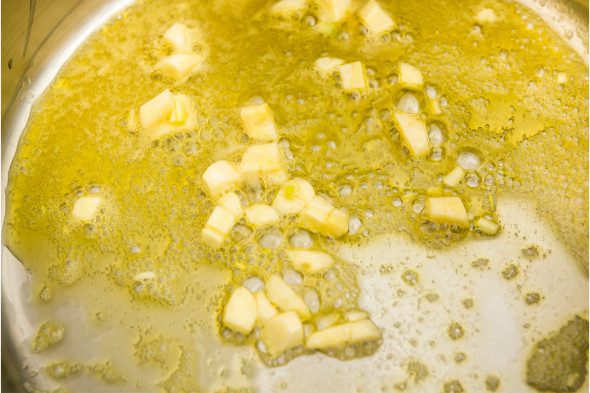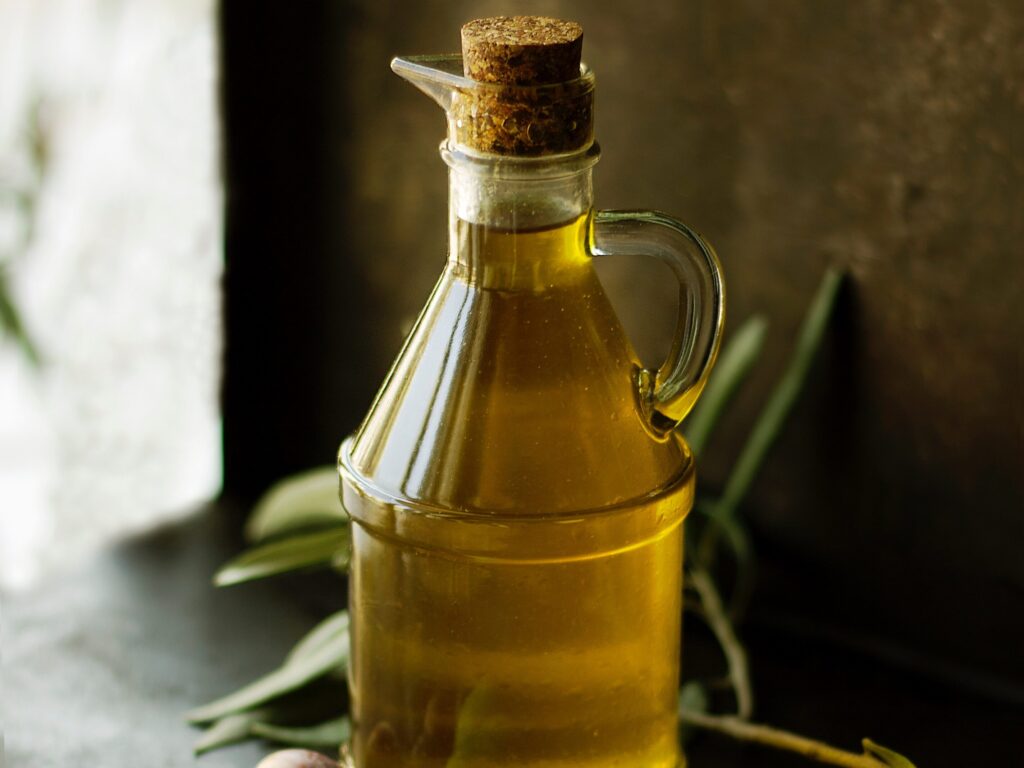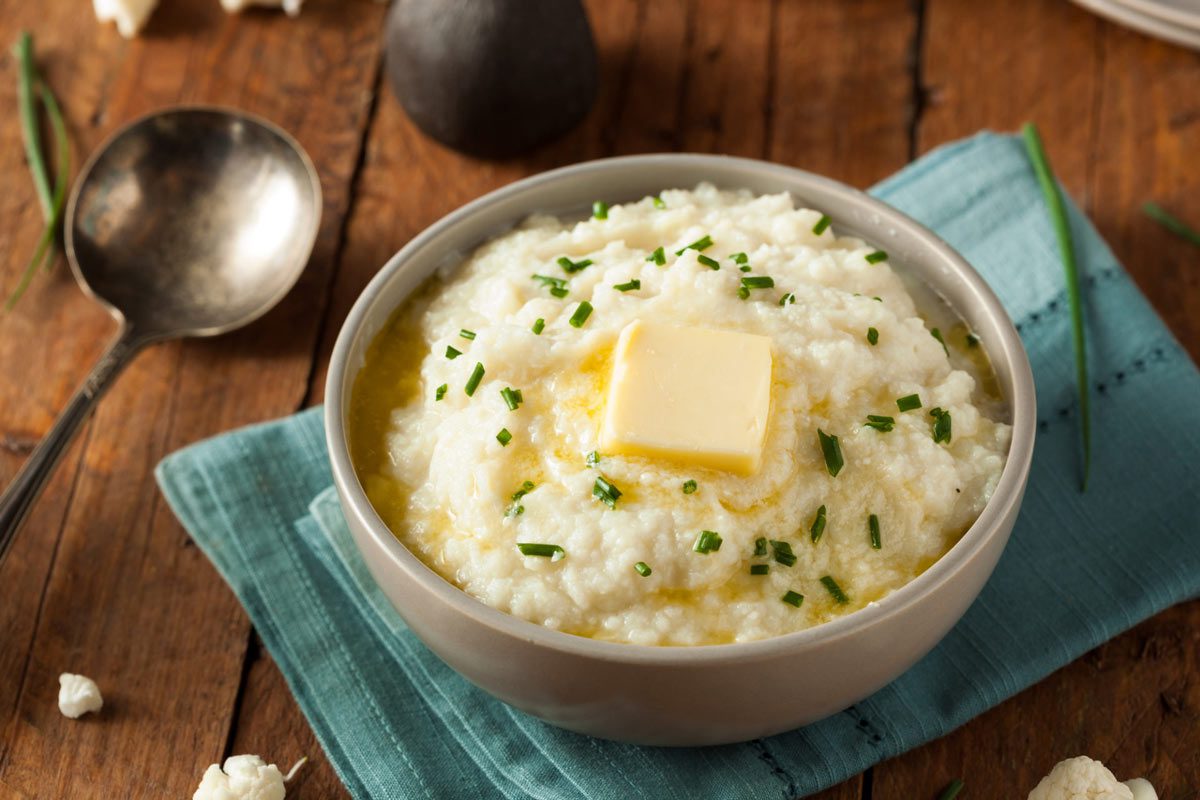There are plenty of health articles comparing butter vs canola oil, coconut oil, avocado oil, and any number of other alternatives. However, there are reasons why butter is better, especially for commercial kitchens that are trying to help their business thrive.
Explore why butter is better in this breakdown for why it benefits your brand.
Why Choose Butter Over Other Alternatives?
Health trends come and go, and there are many butter myths implying butter is outright unhealthy. With a revolving door of butter alternatives that’s constantly churning out new options, butter has remained a tried and true staple to outlast any fad in commercial kitchens. Here are some of the reasons butter still reigns supreme in food service:
- Versatility: Because butter is used so heavily in multiple applications, chefs across the world have had time to perfect its use in everything from baking to frying and finishing dishes.
- Flavor: We’re not exactly breaking new ground by saying butter tastes luscious and has a mouth-feel to match. However, its flavor easily stands a cut above the rest and lingers on the palate longer. If a restaurant or kitchen is using an alternative, you can, in fact, believe it’s not butter—because the flavor just isn’t quite right.
- Health: While butter is still a calorically dense food, there’s a reason it’s so often used as the standard against which alternatives compare themselves. People know what to expect from it nutritionally. What most people might not know, however, is that those calories aren’t empty, either—as a natural fat, butter is a source of Vitamins A, E, D, and K, along with the essential mineral selenium.
Margarines
Margarine is a vegetable-based spread that, among other things, helped chefs at home and in food service get through the rationing periods of World War II.

It’s most often made with vegetable oils and is typically considered vegan, but some brands use small amounts of animal products like whey or milk when producing it. It also has a slightly higher smoke point than standard butter, but it tends not to have the same deliciously deep flavor profile.
Oils
There are multiple different types of oils that commercial kitchens use, all of which stack up differently when compared to butter in the same applications. Here is a quick breakdown of some of the most common types:

- Canola oil: Because of its neutral flavor and darker color, canola is commonly used in commercial kitchens for sauteing and stir-frying. On the other hand, it tends to be expensive compared to other types of oil and not flavorful on its own, making it less ideal for cooking or plating in food service.
- Vegetable/soybean oil: Commonly used for everything from deep-frying to baking, vegetable oil is one of the most affordable options for restaurants. However, it has a higher fat content than butter and is often partially hydrogenated, making customers more averse to consuming dishes with it.
- Coconut oil: Used in everything from fried foods to shampoo, coconut oil is having a bit of a moment with consumers. However, because it’s prohibitively expensive and has a relatively low smoke point, it’s not ideal for use in commercial cooking or plating.
- Avocado oil: Typically high-quality and nutrient–dense, avocado oil is part of a growing trend among cooking oil alternatives because it has a very high smoke point. It’s also prohibitively expensive.
- Olive oil: When comparing butter vs. olive oil, it’s important to remember that there’s history involved. Widely consumed for thousands of years, olive oil is a staple in everything from salad dressings to pasta dishes and sautés. But, illicit olive oil is rampant, making it less likely that you’re purchasing quality oil without buying particularly high-priced varieties.
While many of these oil varieties have their place in the modern food service kitchen, they can often be impractical for broader use or hurt your overall profit margins.
Plant-Based Spreads
Although they may seem similar at face value, margarine and plant-based butters are two separate products. This is because margarine may still contain trace amounts of dairy products, while plant-based butter is completely non-dairy.
While it can be helpful to keep plant-based spreads handy for guests who have strict vegan or vegetarian diets, there isn’t much nutritional difference between the two. Plant-based spreads still have large amounts of saturated fats, which can be just as unhealthy as cholesterol. The two are both calorically dense, and plant-based spreads typically contain more coloring and artificial flavoring to make them taste more like butter.
The Benefits of Butter
Aside from having a few healthy qualities of its own, the benefits of butter for food service cannot be understated. Here are just a few reasons why:

- Creativity: Butter is more versatile than many of its alternatives. This is especially true if you use your butter to make compound butter—purchasing this in bulk saves your company time and labor costs, along with offering flavors your customers won’t find anywhere else.
- Crowd-pleasing: It’s hardly a secret that people know butter tastes better than most of the alternatives on the market, which is why they’ll order dishes with butter bases and sauces every time they come to you.
- Consistent: It’s far easier to develop innovative new sauces, side dishes, and entrées for your menu and products using butter because it’s a reliable base in test kitchen settings that pairs well with other ingredients.
Buy Your Butter from Butterball® Farms
The other key to getting quality butter is getting it from a quality provider. As America’s leading provider of pre-shaped and flavored butters and an industry-best BRC Certification AA rating for quality, Butterball Farms is at the forefront of flavors from all over the world. Order some of our portioned-controlled single-serve butter shapes today from your local distributor or connect with us about building a better butter flavor unique to your business.

